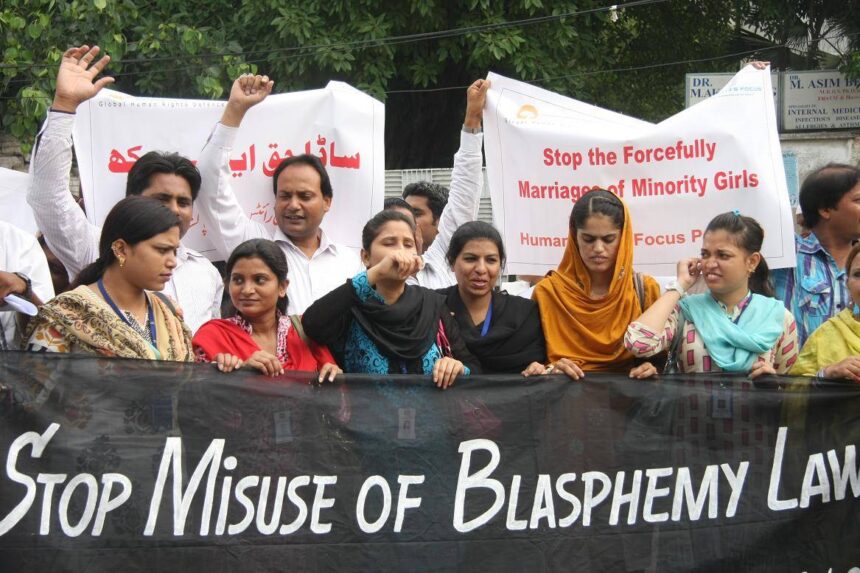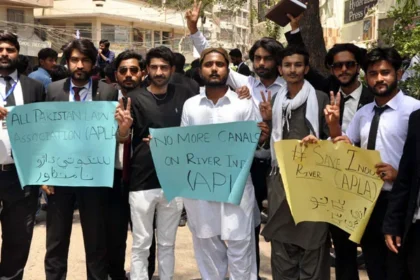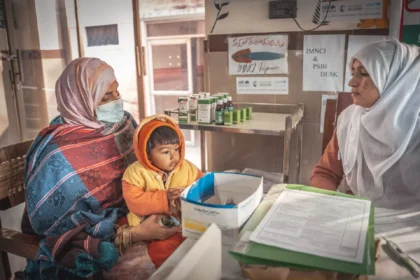By the standard of justice, law is meant to protect the vulnerable; it is intended to maintain peace and harmony in a state. The same standard applies in Pakistan; yet, Section 295 casts a shadow of fear and dissonance over its citizens.
The association of Section 295 with the concept of blasphemy is so deeply entrenched in the public consciousness that the original intent is lost. The provisions were first introduced, not as weapons, but as safeguards of religious coexistence and to establish the prevention of hate-fuelled violence. It is part of a broader effort to develop a legal structure that upholds dignity and respect for all religious communities in our deeply diverse society.
Section 295 dictates the following subsections:
- 295 prohibits damaging or defiling places of worship.
- 295-A criminalises deliberate acts intended to outrage religious feelings.
- 295-B punishes the desecration of the Holy Quran.
- 295-C, perhaps the most infamous, mandates the death penalty or life imprisonment for defiling the name of the Prophet Muhammad (PBUH).
Despite its textual commitment to protecting religion, the reality of its implementation is starkly different. In today’s Pakistan, invoking Section 295 triggers immediate public outrage, media sensationalism, and, at the worst—but unfortunately, in typical cases—mob violence. In circumstances where Article 295 is enacted, a proper investigation should be initiated by the relevant authorities. The law must be allowed its due process, yet that doesn’t always take place.
The accused is condemned socially. The people take the law into their own hands and kill the person. The courts are replaced with crowds, and evidence is replaced with rumour, which is deemed enough to carry out the mob’s justice. There is a widespread debate on this topic, where one side argues that blasphemy laws are necessary to uphold the sanctity of Islam and the finality of prophethood with Muhammad (PBUH). The other side refutes by stating how these laws have been twisted beyond recognition and are used to deny the right to a fair trial.
The curvature of justice raises a critical question: Why does a mere allegation of blasphemy override due process?
The answer lies in the apparent misuse of the law. According to a report done by the Centre for Research and Security Studies (CRSS) that looks at the history of blasphemy allegations in the country, there is a clear pattern where these blasphemy allegations have been used not just to defend faith, but to settle personal scores, to take over property, to intimidate minority groups, and to exploit sectarian division. Once the individuals are accused, regardless of whether they are innocent or not, they are ostracised, imprisoned, or killed. Families are made to flee their homes, and communities are shattered. The accused, even if acquitted, may have to live in hiding or seek asylum abroad.
What’s even more concerning is the complicity of silence from the ones who must work to overcome this. The state is often outplaced by public outrage and religious pressures. It has been unwilling to uphold the standard of justice regardless of bias in the face of mob fury.
It all hit home hard in August 2023 when Jaranwala, a city in the Faisalabad district, saw a shocking wave of violence against Christians. What set it off? Some folks accused two Christian men of ripping pages out of the Quran. This led to thousands of people attacking Christian homes, burning churches, and causing destruction everywhere. The Salvation Army Church was still smoking the next day. Many Christians, who had to grab their kids and run, described the horror they faced. Their Bibles were burnt, their houses were trashed, and their lives were turned upside down.
Yassir Bhatti, a 31-year-old Christian who lives there, shared how mobs dragged out furniture, fridges, and even religious books, tossing them into the fire right by the church. Another woman, Sonam, had to flee barefoot with her kids. Her house, like so many others, was set ablaze by men acting like they could do whatever they wanted. There are videos of the police just standing there as chaos unfolded. Over a hundred people got arrested, but real justice feels far away. The two Christian men accused of blasphemy were taken in, but whether they’ll get a fair trial or end up as victims of the system is still up in the air.
In a sound justice system, no one gets to play judge, jury, and executioner all at once. The law states that all accusations, regardless of their seriousness, must be thoroughly investigated with proper evidence and fair treatment. But in Jaranwala, it wasn’t the courts or the police who stepped in first; it was a furious crowd that took it upon themselves to punish. This is not just risky; it’s against the law.
The public shouldn’t take justice into their own hands. It’s up to the authorities, who are supposed to follow the Constitution and uphold justice fairly, without letting emotions run wild. When mobs take charge, what we call justice turns into revenge, and that’s when the whole idea of a lawful society starts to crumble.
Just think about all the innocent people in this awful situation, like the kids who watched their homes go up in flames, the women who ran away barefoot with their babies, and the elderly folks who did nothing wrong except belong to the ‘wrong’ faith at the wrong time. What did they do to deserve this? They weren’t even accused of anything. Yet their lives were utterly destroyed, their Bibles were damaged, their homes were looted, and their churches were set on fire.
And all this chaos was sparked by what two Christian men were said to have done. There wasn’t even any proof shown in court, just some wild stories and photos circulating on social media and accusations scribbled in red ink on some torn papers supposedly found near a Christian area. That was enough for the mob to justify their violence. How can an accusation against two men lead to punishment for an entire community? How do we let anger cloud our judgement and gossip replace objective evidence?
Justice, if it’s to mean anything, must be fair, measured, and focused on individuals.
All religions can be and should be protected by this law. The enforcement of such a law should keep every faith from being insulted or disrespected. But we can’t let that protection mess with justice. It can’t be one-sided or enforced by people who are angry or misinformed. We need a law that respects religious beliefs while upholding fairness, truth, and human dignity. And that only works when we follow the right process, using evidence and proper investigations—not by letting mobs or rumours take over.
If we don’t have due process, even the best laws can turn into dangerous weapons in the wrong hands. So, respecting religion means we also have to respect the principles of justice that make any good society function and enforce the law as intended, with the betterment of society in mind.














